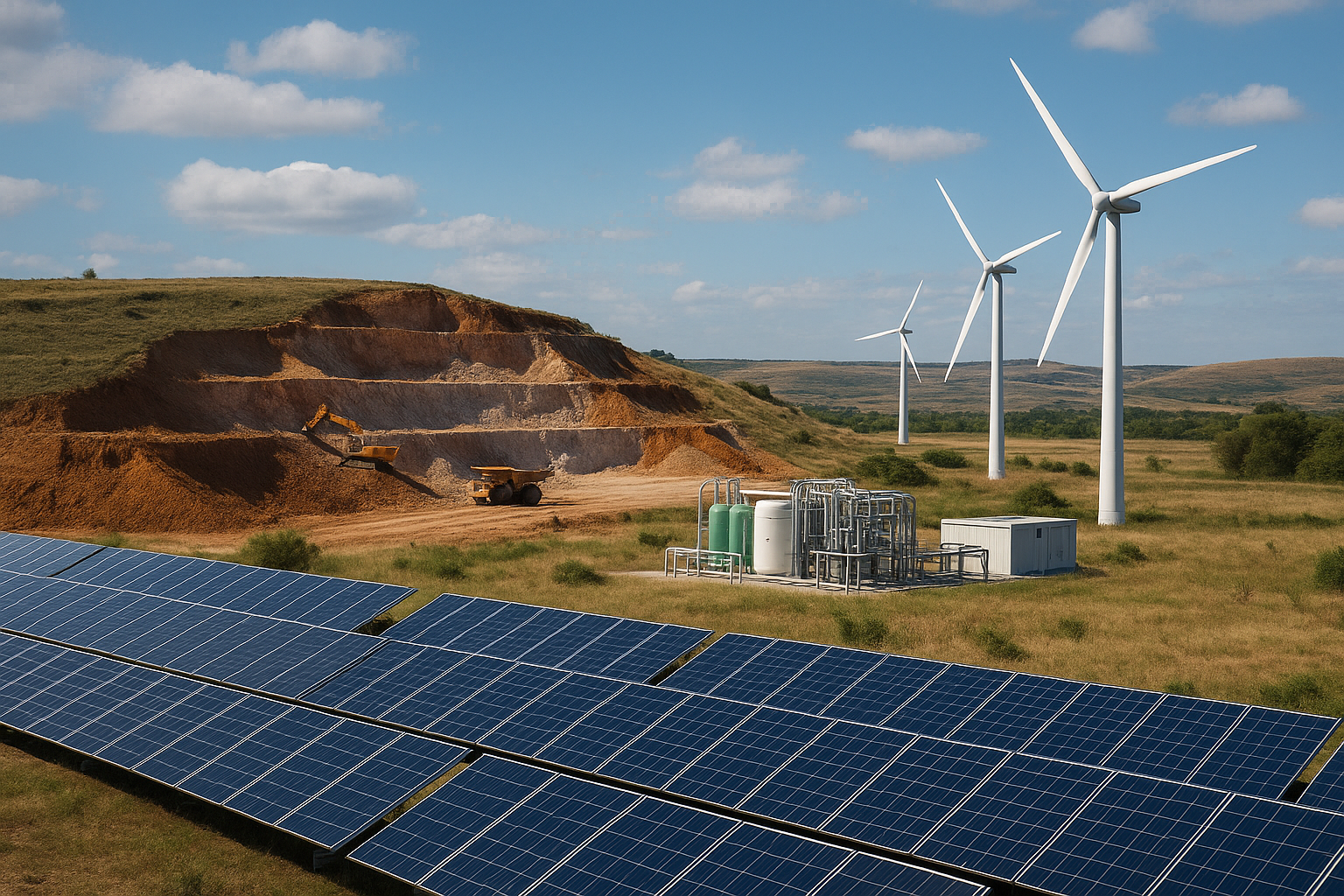How ‘green tech’ expands old patterns of extraction under climate rhetoric
The authors point out that the experimental character of green tech governance can produce both innovation and instability. While it accelerates technological learning, it also externalizes risks to peripheral regions that host pilot projects. These areas often bear the environmental and social costs of testing technologies that may later benefit industrialized economies.

A new study challenges the prevailing optimism surrounding the global green transition. The authors argue that technologies marketed as “green” are not merely tools for sustainability but active agents in reshaping political and economic frontiers. Their research reveals that renewable energy projects, digital carbon systems, and climate-tech industries are creating new forms of extraction, displacement, and geopolitical dependency in the name of environmental progress.
The study, titled “‘Green Tech’ Geographies: The Role of Technology in Contemporary Frontier-Making Processes”, published in Political Geography, examines how green technologies expand into new territories, redefine value systems, and reconfigure global relations of power. The authors call for a rethinking of how frontier-making is understood in an age where decarbonization, resource competition, and technological innovation intersect.
How green technologies create new frontiers
The authors shed light on how the worldwide rush for decarbonization and digital climate governance has fueled a new era of “frontier-making”, the process by which previously marginal spaces become central to economic and political interests. The green transition, they argue, is built on a paradox: while it seeks to end dependence on fossil fuels, it simultaneously opens fresh zones of extraction and control.
From lithium and cobalt mining for batteries to vast renewable energy corridors and carbon monitoring networks, technologies are not passive instruments but active frontier drivers. The authors show that technological systems, ranging from hydrogen production plants to blockchain carbon registries, create new territorial claims under the banner of sustainability.
The paper identifies three dimensions through which these new frontiers unfold: relational, imagined, and experimental. Each offers a lens for understanding how technology reshapes geography, economy, and governance.
In the relational dimension, frontiers are not isolated regions of resource extraction but interconnected networks of production, logistics, and data. For instance, the development of green hydrogen ties together mines, ports, and pipelines in Africa, South America, and Europe, linking distant sites through technological and financial dependencies. These relationships determine which regions supply raw materials, which develop production capacity, and which consolidate technological control.
The politics of green tech imagination
The second key dimension, imagined frontiers, focuses on how visions, maps, and strategic frameworks shape where and how green technologies expand. The authors argue that the spatial imagination of policymakers and investors often precedes the physical creation of green projects. Global hydrogen maps, renewable potential assessments, and “green corridors” are examples of how data-driven visions translate into territorial priorities.
These imaginaries, built around promises of sustainability and efficiency, often neglect local ecological and social realities. The paper shows that many of the regions identified as “high potential” for green energy, those with abundant sunlight, wind, or open land, are also home to indigenous communities and fragile ecosystems. Once labeled as “frontiers of opportunity,” such areas attract state and corporate intervention, leading to disputes over land rights, environmental degradation, and the redistribution of power.
According to the researchers, this process reflects a new form of techno-political colonialism, where sustainability serves as a moral and economic justification for expansion. The language of green progress, while appealing, conceals the continuation of extractive relations between the Global North and the Global South.
Experimentation, uncertainty, and power
In its experimental dimension, the study highlights how green technologies are still largely under development, creating volatile and uncertain frontiers. Many renewable systems, hydrogen chains, and carbon accounting platforms are experimental, financed through pilot projects and public–private partnerships. This experimental nature turns frontier-making into a high-stakes process of trial and error, guided by funding mechanisms, derisking policies, and speculative investment.
The authors point out that the experimental character of green tech governance can produce both innovation and instability. While it accelerates technological learning, it also externalizes risks to peripheral regions that host pilot projects. These areas often bear the environmental and social costs of testing technologies that may later benefit industrialized economies.
The study connects this dynamic to historical patterns of industrial frontier expansion, showing that technological experimentation has long been used to justify intervention in “unproven” territories. Today, green tech frontiers follow similar trajectories, backed by global finance and digital governance tools that make resource exploitation appear environmentally responsible.
The authors argue that technology has become a frontier-making force in itself, an agent that produces new territories, infrastructures, and dependencies. Control over technical knowledge, patents, and platforms translates directly into geopolitical leverage. This concentration of technological power risks reinforcing the very inequalities that climate policies are meant to resolve.
Rethinking the geography of the green transition
The geography of the green transition must be understood not only through its environmental benefits but also through its socio-political costs, the study concludes. The green economy, the researchers contend, does not simply replace fossil capitalism with a cleaner version, it reorganizes it. By reframing nature as a technological problem to be managed, the transition risks extending the reach of capital and governance into new domains.
The authors advocate for a critical geography of green technology that accounts for power asymmetries, knowledge hierarchies, and territorial inequalities in the global energy transition. Such an approach, they argue, can expose how the pursuit of sustainability continues to rely on the expansion of frontiers, physical, digital, and political, into the planet’s remaining margins.
- FIRST PUBLISHED IN:
- Devdiscourse










